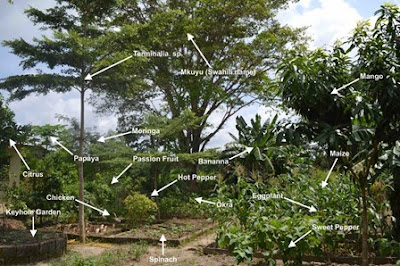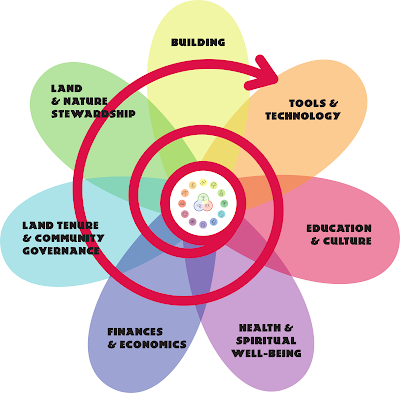PDC LESSON 7.7 COMPOST – HOW DECOMPOSTING TAKE PLACE
PERMACULTURE COURSE AGRO-ECONOMY
PDC LESSON 7.7 COMPOST – HOW
DECOMPOSTING TAKE PLACE
How decomposition takes place
Almost immediately the action starts.
Psychrophiles start working at 6° C.
These start to digest carbon compounds and will alter the chemical state
of organic matter giving of small amounts of energy that will eventually raise
the temperature of the pile for the next group of bacteria to thrive-
mesophiles, a mid-temperature bacterium that thrive at 20-44 °C.
These
do the most work at decomposing the heap. Even if the heap does not reach
higher temperatures than this it does not really matter as most decomposition
takes place at this temperature. Larger creatures such as worms and insects are
working in tandem with the mesophiles breaking down organic matter into smaller
pieces by eating and digesting it. It becomes easier if matter has been
shredded beforehand where more surface area is exposed to the bacteria and
decomposition will speed up.
If
conditions are right- enough air, water, carbon/ nitrogen balance and the pile
is big enough, the temperature will rise even further to 44- 70 oC by the thermophiles.
Decomposition
is now in full swing, and the heat can get very intense. The thermophiles can
maintain this temperature for 3- 5 days before dying back. Turning the compost
heap at this stage will provide a new fix of oxygen and a new cycle can happen
again. Up to 3-4 times.
The
advantage of such a temperature is that disease and weed seeds are destroyed.
Once the heat drops back down again the microbial activity starts to decrease
and other organisms take over to complete the breaking down process. At these
mid temperatures the fungi such as actinomycetes and streptomyces are at work
producing natural antibiotics that keep disease at bay. You know these
organisms are present when you see white cobwebby structures- a sign of good
healthy compost. In perfect conditions the compost can be ready in 6 weeks, but
it will more likely be several months.
If compost
is used very fresh, it can still have nitrogen draw down as it is still
decomposing instead of being able to give it to the plants.
Text from the roots, Elisabeth Ferkonia (Aus.) PDC studied with Bill Mollison,




Comments
Post a Comment